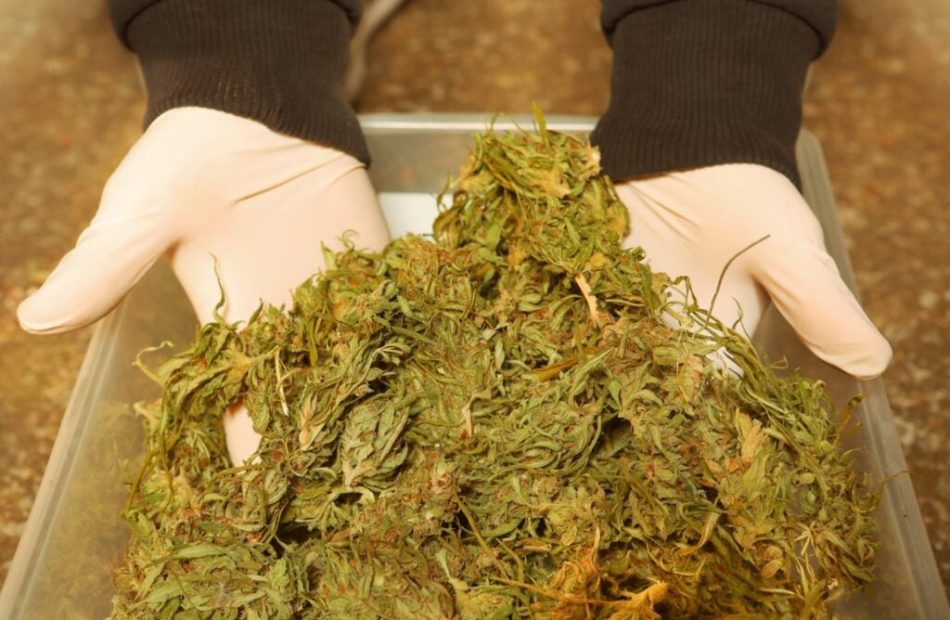Weed Smuggler Among Few Freed Under Germany's New Cannabis Law
Germany’s cannabis legalization law applies retroactively. This means that people who were arrested for possessing up to 25 grams of weed and are still in jail should be released. The law took effect on April 1st, but how many prisoners have been freed since then?
Only a few have been released, according to data requested and obtained by IPPEN.MEDIA. According to the data received for 13 out of 16 federal states, Bavaria has released the most people, with 33 prisoners freed, writes Frankfurter Rundschau according to the translation. The second state with the most freed individuals is Baden-Württemberg, which has released 19 people.
However, the highest number of releases is likely in North Rhine-Westphalia (NRW), a state in western Germany. With more than 18 million inhabitants, NRW is the most populous state in the country. Moreover, it is said that the state’s regulators have reviewed the most files, but the ministry couldn’t provide the requested data.
Cannabis legalization opponents often argue that legalization leads to a large number of criminals being back on the streets. The number of released prisoners under the new cannabis law in Germany testifies against this claim. This is because a significant number of people imprisoned for substance offenses have multiple convictions. They were not put in prison just because they were “caught with a joint,” according to one ministry.
Get Benzinga’s exclusive analysis and the top news about the cannabis industry and markets daily in your inbox for free. Subscribe to our newsletter here. If you’re serious about the business, you can’t afford to miss out.
Complexity And Controversy
One particularly interesting case made headlines recently and opponents are using it as an argument against the reform. The case is before the Mannheim Regional Court and involves a 36-year-old man who smuggled 450 kilograms (992.08 lbs) of cannabis into Germany, estimated to be worth 1.9 million euros ($2.1 million), reports the German outlet. The controversy arises from the new law, which doesn’t consider cannabis-related crimes as serious crimes and therefore the prosecutors can’t use encrypted chats from the provider Encrochat as evidence. The man was released, prompting Baden-Württemberg’s Minister of Justice, Marion Gentges (CDU), to say, “Drug dealers are beneficiaries of this law.”
‘Enormous Workload’ For The Judiciary
Back in March, justice ministers from various states joined together to push for postponing its enactment from April 1 to October arguing that the judicial system will be burdened with thousands of cases of people seeking retroactive amnesty or expungement.
“In Lower Saxony alone, we anticipate over 16,000 files due to the proposed amnesty, which will need to be manually reviewed by our already overburdened staff – nationally, this figure is significantly higher,” Lower Saxony’s Justice Minister Kathrin Wahlmann said at the time, according to CannaBizEu.
Since the postponement failed, the judiciary has been flooded with files that need to be reviewed. It is estimated that a minimum of 200,000 files need to be manually reviewed. Some amnesty cases fall fully, some partially, under the intended amnesty, and this needs to be clarified, which requires time.
“The additional workload caused by the Cannabis Law is enormous for the judiciary,” said Bavaria’s CSU Justice Minister Georg Eisenreich. In Bavaria alone, prosecutors need to manually review about 41,500 paper files.
On the bright side, as time passes, there will be fewer cannabis prisoners under the new law, which will reduce the judiciary’s workload.
Continue reading on Frankfurter Rundschau.
Read Next:
Photo: Courtesy of Couperfield via Shutterstock
Market News and Data brought to you by Benzinga APIs
© 2024 Benzinga.com. Benzinga does not provide investment advice. All rights reserved.





Leave a Reply